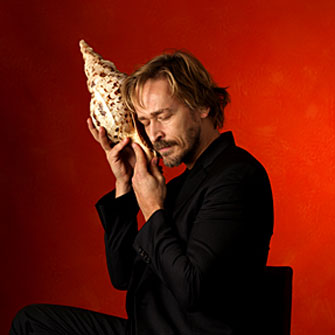
There is no shortage of venerable institutions in France, but they don’t come much more venerable than the Comédie Française. Founded in 1680 under royal order by Louis XIV, the theater was created as a symbol of national prestige and has remained one ever since. Not only has its main auditorium been situated in the same place (the Salle Richelieu in the Palais Royal) since 1799, but it is also the only state theater with a permanent troupe of actors.
To be one of the troupe’s 64 members is a mark of enormous distinction, as lovers of French cinema will have noticed each time the credits roll: any Comédie Française actor is always identified onscreen as being a member of this august group. The troupe’s actors are either “sociétaires,” members chosen by vote after a year in the company who share in its profits, and “pensionnaires,” who are usually more junior. Their prestige and financial security sets the company’s members far apart from most occasional actors in France, the “intermittents du spectacle,” who have been disrupting many arts festivals around the country this summer in protest at reforms to their special unemployment regime.
Such is the high regard in which the Comédie Française is held that each new general administrator is appointed by the French president, as was the case last week when François Hollande chose Eric Ruf as the theater’s new leader.
The problem with venerable institutions is that, unless they are careful, they run the risk of appearing both stuck in their old ways and overly complacent. Although it can sometimes be a virtue not to keep up with the times, it has for a long time struck me that the Comédie Française could do with a serious shakeup.
An indication of this reluctance to change came to the fore a few years ago when I visited the Comédie Française shop. Although the DVD revolution had already been well underway for several years, the shop still only stocked films of the company’s repertoire in video format. Each time I pointed out this anomaly (and this happened on a number of occasions), I was met with incomprehension and even hostility. Needless to say, the shop now does stock DVDs just at a time when the DVD format itself is under threat from other media.
More worryingly, however, far too many of the Comédie Française’s productions of classic plays by great dramatists like Molière, Racine and Corneille tend to be turgid, influenced by 19th-century interpretations and acting techniques. I once saw a performance in the Salle Richelieu of Molière’s wonderful comedy Le Misanthrope that did not elicit a single laugh from the audience.
When searching for fresh, innovative productions of classic theater, in recent years I have tended to look elsewhere. Vincent Dumestre and Le Poème Harmonique’s production of Molière’s Le Bourgeois Gentilhomme, for example, managed to recreate authentic 17th-century staging, music, acting styles and even pronunciation and still be hilarious. I cannot imagine the Comédie Française ever putting on a play with such vitality and creativity.
The appointment in 2006 of the first woman as general administrator, Muriel Mayette, promised good things. Even though she was an insider, coming from the ranks of the theater’s permanent troupe, she began positively. However, her final years in charge were marked by in-fighting and resistance to the inevitable financial cuts endured by so many arts organizations in Europe during the economic crisis.
This time the candidature of an outsider, Stéphane Braunschweig, reportedly the choice of French Culture Minister Aurélie Filippetti, appeared to offer hope of genuine change. (I once saw a production by Braunschweig of Le Misanthrope, which, while hardly uprooting any trees in terms of novelty, at least managed to be amusing). However, perhaps inevitably, an insider, Eric Ruf (a member of the Comédie Française since 1998) has been given the post. Apparently Ruf was the choice of François Hollande’s friend and supporter Denis Podalydès (who himself could have been given the job but who has decided to concentrate on his directing and acting career instead; he is a popular film actor in France), which led to Hollande overruling his own culture minister.
Although Ruf is a talented actor and director, it seems to me unlikely that he will have the independence and will to transform the Comédie Française’s fortunes. I hope my pessimism is misplaced.
Favorite